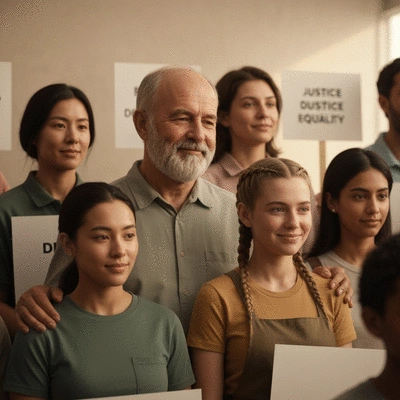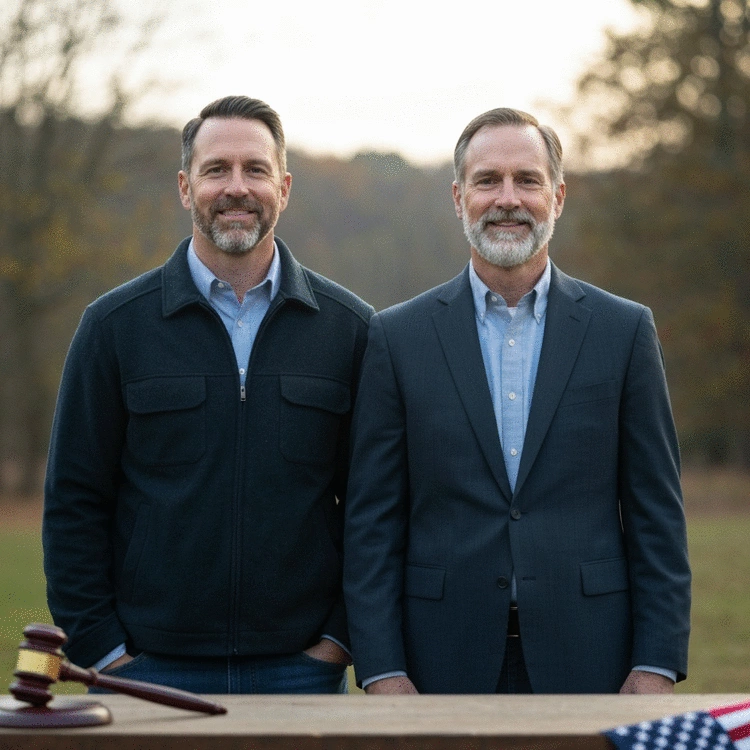In light of the heartbreaking murder of Trinity Randolph, this case compels us to reflect on the systemic issues within our communities and justice system. It serves as a potent reminder of the importance of accountability and advocacy for change.
What You Will Learn
- Trinity Randolph's tragic murder at just three years old has sparked profound community grief and outrage.
- The need for stronger child safety measures and community advocacy is paramount in preventing similar tragedies.
- Law enforcement faces scrutiny regarding their handling of the investigation and the need for greater transparency and accountability.
- Understanding the appeals process in Kentucky is crucial for families seeking justice and how legal proceedings can be affected by issues like juror misconduct.
- Community support systems, such as local support groups and advocacy initiatives, play a critical role in the healing process for victims' families.
- Active civic engagement is essential for promoting justice reforms and ensuring the voices of victims are heard.
Journey Through Justice: The Kentucky Murder Case
This visual outlines the complex legal proceedings and community impact surrounding the Kentucky murder case, from the initial tragedy to the broader implications for justice and healing.
Phase 1:
Tragic Incident
3-year-old Trinity Randolph's murder, sparking community outrage and scrutiny of law enforcement.
Phase 2:
Initial Conviction
Convicted killer Lawless faces sentencing, initiating complex legal proceedings.
Phase 3:
Juror Misconduct
Revelations of misconduct and perjury bring trial integrity into question.
Phase 4:
Supreme Court Review
Kentucky Supreme Court reassesses the case, emphasizing fair and equitable justice.
Phase 5:
Appeals Process Explained
Understanding the steps to ensure rights protection and error correction in legal appeals.
Phase 6:
Broader Implications
The case's impact on future legal proceedings, victim advocacy, and community healing.
Phase 7:
Community Engagement
Encouraging civic action, staying informed, and supporting victims' families.
Understanding the Kentucky Murder Case: An Overview
The tragic murder of 3-year-old Trinity Randolph has sent shockwaves through Kentucky and beyond. This devastating incident highlights not just the pain experienced by the victim’s family but also the larger implications for our communities. At The Stone Builders Rejected, we believe that understanding these events is crucial for fostering informed discussions around justice and safety.
Details surrounding Trinity's case reveal a heartbreaking tale of loss. Her untimely death at such a young age raises important questions about safety and the effectiveness of law enforcement in preventing such tragedies. On the day of her murder, Trinity was described as a vibrant child full of life and laughter.
![]() Background of the Tragic Incident Involving a 3-Year-Old
Background of the Tragic Incident Involving a 3-Year-Old
Details Surrounding the Murder of Trinity Randolph
On a seemingly ordinary day, tragedy struck when Trinity Randolph was killed in her home, igniting outrage and sorrow throughout the community. The circumstances of her death remain disturbing, with many questions lingering about how such a young life could be taken so brutally. It’s essential to remember her not just as a victim, but as a child whose life held immense potential.
- Trinity was only three years old at the time of her murder.
- The incident has drawn significant media attention and community support for her family.
- Local law enforcement is under scrutiny for their response and investigation.
The impact of this tragedy stretches far beyond one family. It is felt throughout the community, which is grappling with feelings of anger, sadness, and a profound sense of loss.
Impact on the Victim’s Family and Community
For Trinity's family, the loss is unimaginable. They are left to navigate a world without her laughter and joy, a feeling that no parent should endure. The community, too, feels the weight of this tragedy, sparking conversations around child safety and the need for justice. Community vigils and gatherings have taken place, highlighting the collective grief and commitment to seeking justice for Trinity.
Trinity’s murder has also prompted discussions about the need for stronger protections for children. Families are coming together to advocate for change, emphasizing that no child should ever feel unsafe in their home.
The Role of Law Enforcement in the Investigation
Law enforcement has a vital role in addressing this case and restoring trust within the community. Their investigation into Trinity’s murder has faced challenges, raising questions about the effectiveness of current procedures. Many community members are calling for greater transparency and accountability in how these cases are handled. The New York State Senate's Family Court Hearing Report provides valuable insights into how child welfare and court systems interact, emphasizing the complex nature of such cases and the need for robust support mechanisms for children and families within the justice system.
- Improving training for officers in handling sensitive cases involving children.
- Enhancing community engagement to build trust and communication.
- Addressing resource gaps that may hinder effective investigations.
As we examine these challenges, we encourage readers to reflect on the importance of supporting law enforcement while also holding them accountable. Together, we can foster a safer environment for all children.
Legal Proceedings: From Conviction to Overturning
Initial Conviction and Sentencing of Convicted Killer Lawless
Following the murder, the individual convicted in this case, Lawless, faced initial sentencing that shocked many. The legal proceedings surrounding this case have been complex and fraught with complications, leading to a wave of public interest.
Juror Misconduct and Evidence of Perjury
As the case progressed, troubling revelations emerged regarding juror misconduct and potential perjury. These significant issues have brought the integrity of the legal proceedings into question, prompting a wave of concern and calls for justice from the community.
Kentucky Supreme Court’s Role in the Case
The Kentucky Supreme Court has played a critical role in reassessing the case, providing a platform for justice to be sought anew. Their involvement underscores the importance of reviewing evidence to ensure that justice is served fairly and equitably. The Judiciary of the UK's approved judgment on fact-finding in a complex family case, while from a different jurisdiction, illustrates the meticulous review processes that higher courts undertake to ensure fairness and accuracy in legal determinations, mirroring the principles the Kentucky Supreme Court applies.
Understanding the Appeals Process in Kentucky
At The Stone Builders Rejected, we strive to make complex legal processes understandable for our readers. The appeals process in Kentucky can be intricate, involving various steps to ensure that the rights of all parties are protected. Understanding these steps is vital for families seeking justice.
- The initial appeal is usually filed within a specific timeframe after sentencing.
- Evidence must be presented to support claims of error or misconduct.
- Both parties have the opportunity to present their arguments before the court.
As we navigate these legal waters, it’s essential to remain informed and engaged. Together, we can advocate for change and support victims’ families in their quest for justice.
Pro Tip
In the aftermath of tragedies like Trinity Randolph's case, it’s vital to engage in community advocacy. Consider joining local organizations that focus on child safety and legal reform. Your involvement not only honors the victim's memory but also contributes to building a safer environment for all children.
Frequently Asked Questions (FAQs)
What happened to Trinity Randolph?
Trinity Randolph was a 3-year-old girl tragically murdered in her home, an incident that sparked widespread community outrage and grief.
What were the key issues in the legal proceedings of this case?
The legal proceedings were complicated by revelations of juror misconduct and potential perjury, which led to the Kentucky Supreme Court reassessing the case and overturning the initial conviction.
How can the community support victims' families?
Community members can support victims' families by donating to local organizations, volunteering with advocacy groups, attending community meetings focused on justice reform, and sharing information on social media to raise awareness.
What is the role of the Kentucky Supreme Court in cases like this?
The Kentucky Supreme Court plays a critical role in reviewing complex cases, especially those with allegations of misconduct, to ensure that justice is served fairly and equitably, and that legal processes are followed correctly.
Why is community engagement important in advocating for justice?
Community engagement and civic action are crucial for promoting justice reforms, ensuring transparency and accountability in law enforcement, supporting victims' families, and ultimately contributing to a safer environment for all children.
Reflecting on Justice: The Broader Implications of the Case
The tragic Kentucky murder case involving a young victim has stirred not only local but also national conversations about justice and the criminal justice system. As we reflect on the implications of this case, it’s vital to recognize the ripple effects it creates for future legal proceedings both in Kentucky and beyond. Understanding these implications can empower communities to advocate for meaningful change. The DC Courts' Family Court Annual Report highlights the ongoing efforts and challenges within family court systems, demonstrating the continuous need for legal and systemic improvements to protect vulnerable individuals and ensure justice.
In light of this case, we must consider how similar legal situations might unfold. The conversations surrounding this incident could lead to necessary reforms that enhance public trust in the justice system. Here’s a brief overview of some potential impacts:
- Increased scrutiny on juror conduct during trials
- Calls for transparency in legal proceedings
- Encouragement of greater victim advocacy initiatives
- A push for more equitable sentencing practices
These areas of focus can help shape the future landscape of our justice system, promoting fairness and accountability. As we push for reform, it’s essential to remember the importance of victim’s rights and the broader implications on those affected by similar tragedies.
Emotional and Community Healing Following Tragedy
In the aftermath of such devastating events, emotional and community healing is paramount. Families of homicide victims face overwhelming grief, and building support systems can significantly impact their recovery journey. At The Stone Builders Rejected, we recognize that sharing these stories not only honors the victims but also encourages healing within communities.

Support for these families can take many forms. Here are a few ways communities can come together to help:
- Creating local support groups for victims’ families
- Offering grief counseling services
- Organizing community events to raise awareness
- Providing legal assistance and resources
The role of community activism cannot be understated in promoting justice and healing. When communities unite for a common cause, they can foster resilience and strength. Activism can drive change, ensuring that the voices of those affected by crime are heard.
Join the Conversation: Your Role in Seeking Justice
As the conversation about justice continues, each of us has a part to play. Engaging with our communities and advocating for victims’ families is crucial in the wake of such tragedies. Every voice matters in this collective effort to seek justice and promote change.
How You Can Support Victims’ Families
Supporting victims’ families starts with understanding their needs and being present in their journey. Here’s how you can make a difference:
- Donate to local organizations that support victims’ families
- Volunteer your time with advocacy groups
- Attend community meetings focused on crime and justice reform
- Share information on social media to raise awareness
https://youtu.be/7dabtZfHaik
Staying Informed on Legal Developments and Community Events
Knowledge is power! Staying informed about legal developments related to the Kentucky murder case and similar incidents helps you engage more effectively. Follow local news outlets, and consider subscribing to platforms like The Stone Builders Rejected for insightful coverage on ongoing legal matters.
Participating in community events can also enhance your understanding and highlight ways to support justice initiatives. Being active in your community fosters a sense of solidarity and purpose in addressing the challenges faced by victims' families.
Engaging in Civic Engagement and Advocacy for Change
Civic engagement is crucial in shaping policies and practices that impact our communities. By advocating for change, you can contribute to a justice system that honors victims and prioritizes their families’ needs. Consider these actions:
- Write to local representatives about justice reforms
- Participate in advocacy campaigns
- Join community coalitions focused on crime prevention
- Educate others about victims’ rights and legal processes
By taking these steps, you play an integral role in supporting victims’ families and ensuring that their experiences lead to meaningful change. Together, we can build a more just society, one action at a time.
Recap of Key Points
Here is a quick recap of the important points discussed in the article:
- Trinity Randolph, a 3-year-old girl, was tragically murdered, sparking community outrage and grief.
- The incident has raised critical questions about child safety and the effectiveness of law enforcement.
- Community support for Trinity’s family has led to calls for stronger protections for children and greater transparency in investigations.
- Legal proceedings following the murder have faced scrutiny due to juror misconduct and potential perjury, prompting community calls for justice.
- The Kentucky Supreme Court is involved in reassessing the case to ensure fairness and accountability in the legal process.
- Community healing is crucial, with support systems and activism playing a key role in promoting justice and resilience.
- Engaging with local advocacy efforts and staying informed about legal developments can empower individuals to contribute to meaningful change.

 Background of the Tragic Incident Involving a 3-Year-Old
Background of the Tragic Incident Involving a 3-Year-Old




